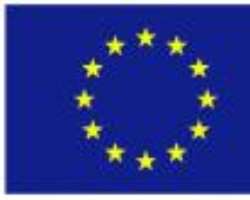New EU support to continue improving security in Somalia

BRUSSELS, Kingdom of Belgium, March 20, 20N3/African Press Organization (APO)/ -- Today the EU has decided to provide additional support of €33 million to the African Union
Mission in Somalia (AMISOM), which plays an essential role in securing the country on its path towards lasting peace, prosperity and stability.
The renewed EU support will allow AMISOM to continue to fulfil its mandate and to reach its total strength of N7,73N troops as authorised by the UN. The EU's support covers costs such as troop allowances, costs of the police and civilian component of the mission, and operational costs of the mission headquarters in Nairobi, Kenya.
High Representative Vice President Catherine Ashton said: "Supporting AMISOM is a key element of the EU's comprehensive approach to Somalia, assuring the security necessary for the Federal Government of Somalia to provide governance, re-establish the rule of law and provide basic social services to the people. AMISOM will remain important as Somalia, with support from the EU and other partners, develops its capabilities and assumes responsibility for its own security. Following the appointment of the new President and government last August, the EU remains committed to supporting Somalia further develop its new political order. This includes finalising the Constitution in the run up to future general elections."
Andris Piebalgs, EU Commissioner for Development said: "AMISOM continues to play a critical role in establishing a safer and more secure environment in Somalia to the benefit of the Somali people and the development of the country as a whole. The EU is committed to continue its support to Somalia to help Somalis to overcome the remaining challenges not only in the field of peace and security but also for example by improving food security, strengthening the rule of law and creating better schools for children".
This new funding amounts to €33 million and brings the overall EU contribution to over €444 million since 2007. Since late 20NN, substantial progress has been achieved, as AMISOM, the Somali National Security Forces and troops aligned to the Somali Government have regained control of most of the capital of Mogadishu and other parts of the country. 2
Background
AMISOM is an African Union-led mission, mandated by the UN Security Council. Its initial mandate includes the provision of support to dialogue and reconciliation in Somalia, the protection of key infrastructure (e.g. government buildings and Mogadishu International Airport) to enable the Transitional Federal Institutions (TFIs) - whose mandate expired in August 20N2 when the Federal Government of Somalia was established to carry out their functions. The mandate also includes support to the implementation of the National Security and Stabilisation plan, and to disarmament and stabilisation efforts, as well as the facilitation of humanitarian operations.
Since its beginning, the EU has been one of the main funders of the operation, both through the African Peace Facility (APF), which is the EU's main instrument to support Peace and Security in Africa, and through bilateral contributions of its Member States. The EU trains Somalia's national security forces through its Training Mission (EUTM Somalia) under its Common Security and Defence Policy (CSDP). Through this mission, the EU aims to helpdevelop Somalia's security sector to ultimately hand over security responsibility to Somalis.
The mission is also contributing to the Africa-EU partnership on peace and security of the Joint Africa-EU Strategy (JAES). The strategy, adopted at the Lisbon Summit in December 2007, remains the overarching policy framework for EU-Africa relations. The JAES puts EU-Africa relations on a new footing, based on the pursuit of shared values and common interests. Both sides are determined to strengthen their cooperation as equal partners, based on this shared long-term vision for EU-Africa relations in a globalised world.
EU development aid to Somalia
European development cooperation in Somalia is designed to put in place minimum conditions for a functioning state, peace and security, as well as to provide basic services to the population. The EU's efforts already achieved substantial results, such as:
• In education: more than 30.000 students gained access to primary and secondary education and 4.000 teachers were trained.
• In water and sanitation: ongoing projects aim to provide access to safe water for up to 70.000 people and over 80.000 with basic sanitation.
For the period 2008-20N3, the EU is allocating approximately €4N2 million to development projects in Somalia:
• Governance (including support to institution building, reconciliation, rule of law, human rights and support to Somali civil society).
• Education and the social sector (including primary and secondary education, adult literacy and teacher and vocational training). Funding also goes to improving access to safe water in urban and rural areas.
• Economic development, including support to the livestock and agriculture sector and to improve food security; mainly through the distribution of seeds and fertilisers, as well as cash transfer systems. This is complemented by EU funded projects on maritime security, water resources management and de-mining in the liberated areas (€N02 million).
N) For more information
EU relations with Somalia:
http://eeas.europa.eu/somalia/index_en.htm
